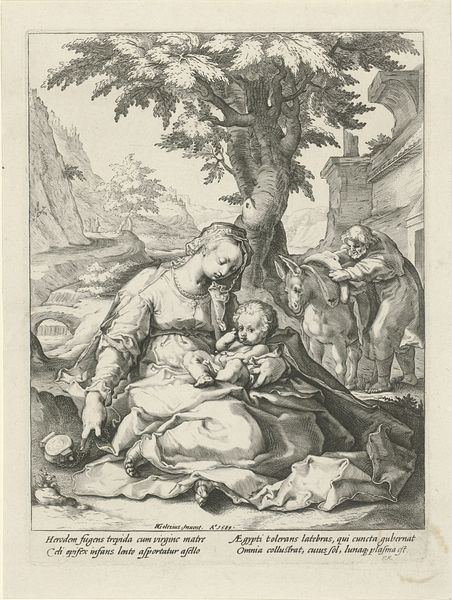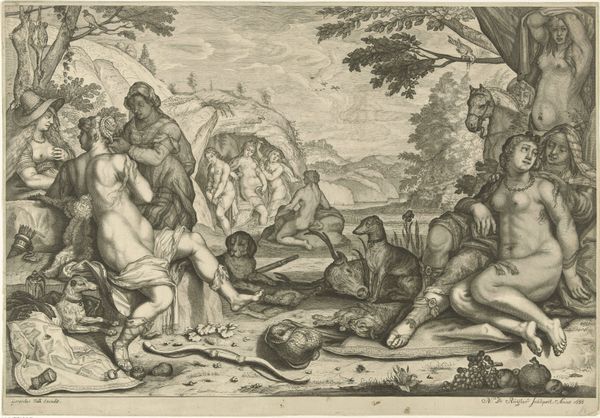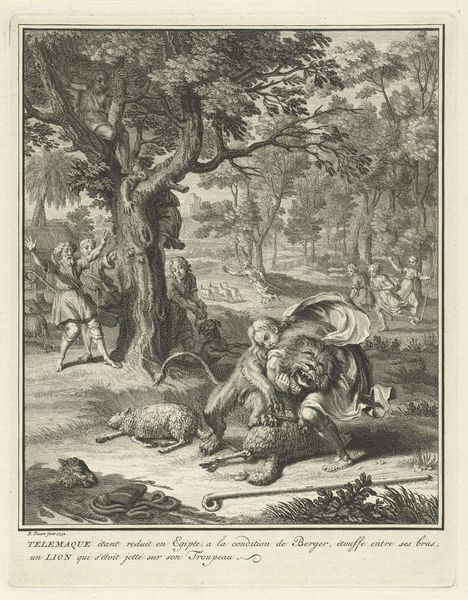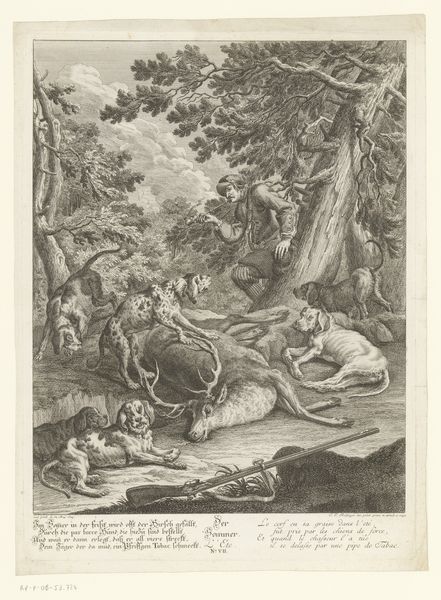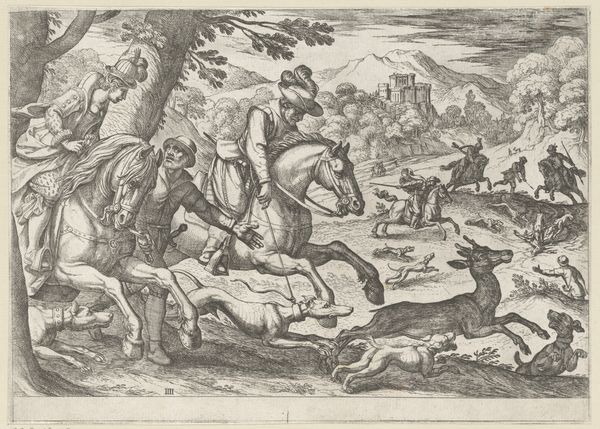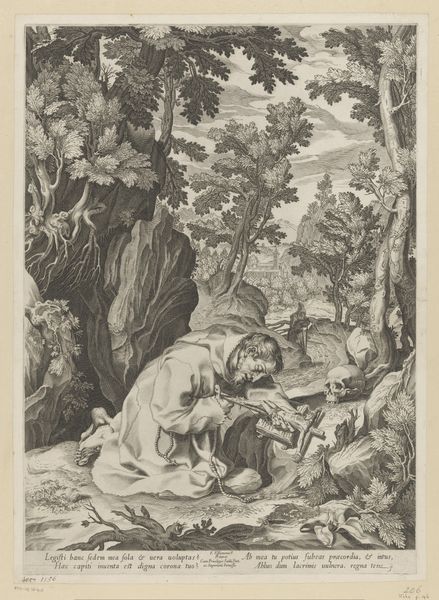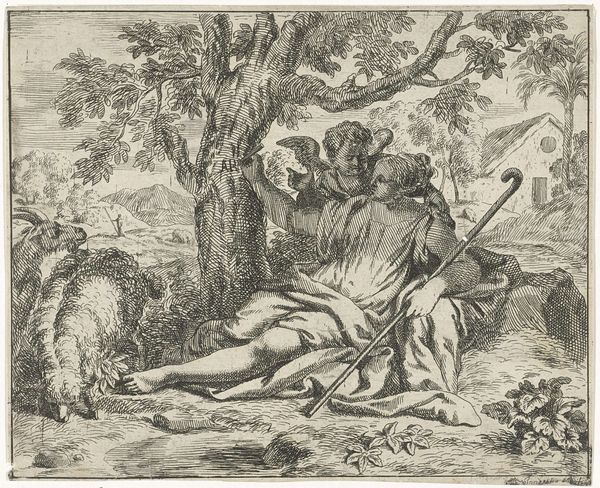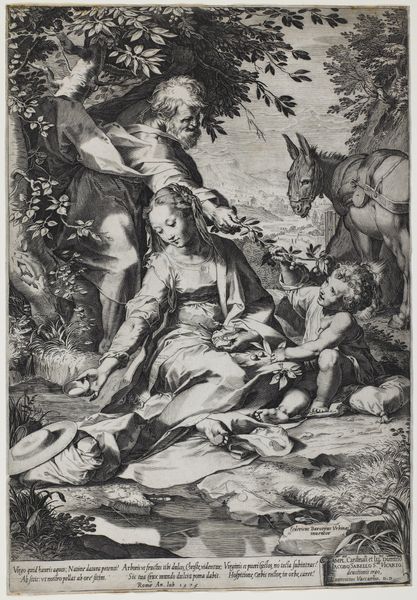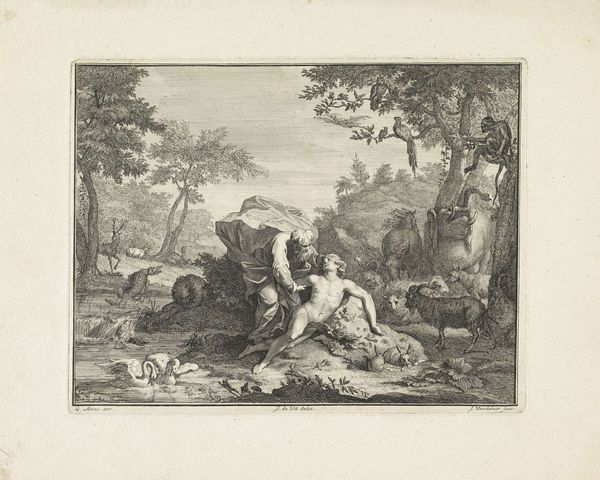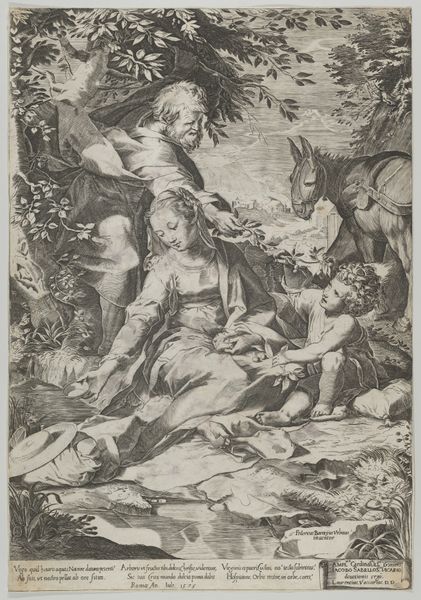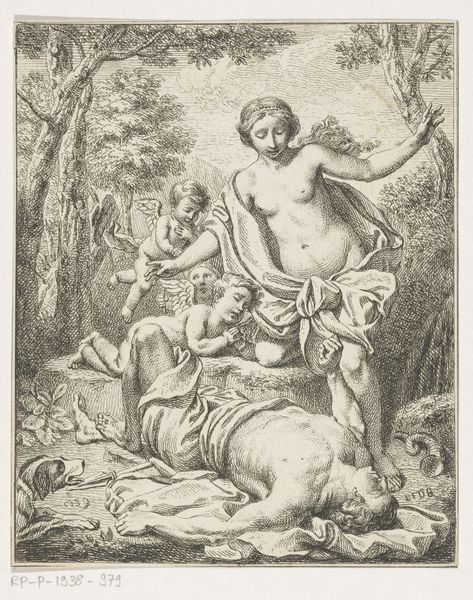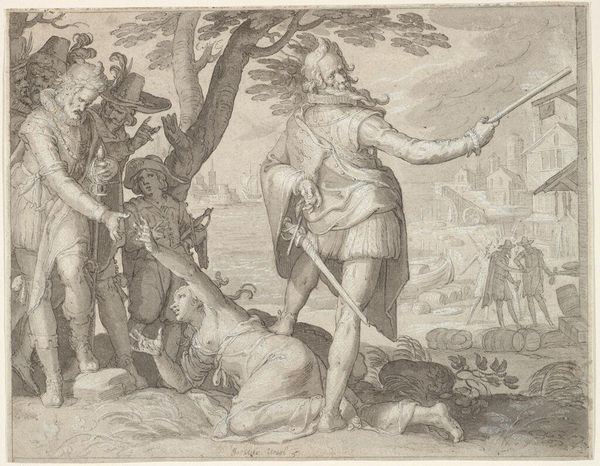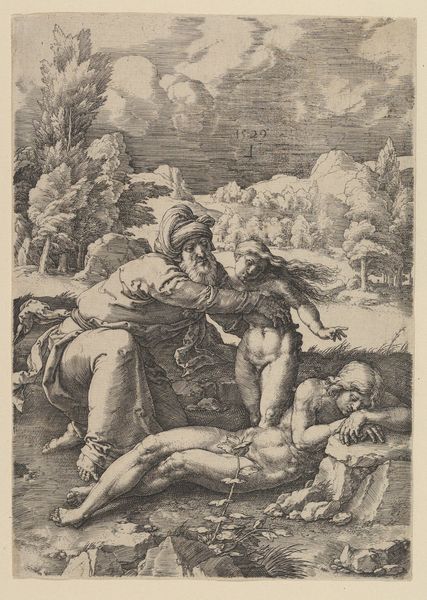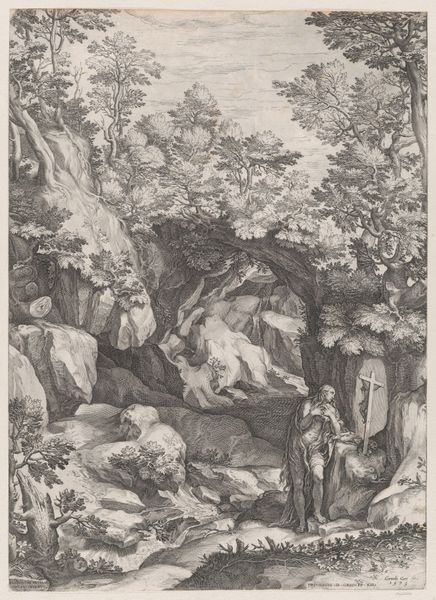
print, engraving
#
narrative-art
#
baroque
# print
#
landscape
#
genre-painting
#
history-painting
#
engraving
Dimensions: height 219 mm, width 156 mm
Copyright: Rijks Museum: Open Domain
This print, “Barmhartige Samaritaan verzorgt de wonden” or “Good Samaritan Tending Wounds”, was made in the 17th century by Jacques Granthomme. It is an engraving, a process that involves incising lines into a metal plate, applying ink, and then pressing the plate onto paper. This technique allows for incredible detail, and Granthomme uses it to great effect. Notice the intricate rendering of the Samaritan’s robes, the horse’s tack, even the trees in the background. But it is more than just a demonstration of technical skill. The labor-intensive nature of engraving reflects the social context in which it was made. Printmaking was a key industry, allowing images and ideas to be disseminated widely, across Europe and beyond. These prints could be produced in multiples, making them more accessible. It makes you wonder how many people encountered this image and this story because of Granthomme's effort at the workbench. By appreciating both the process and the context, we gain a fuller understanding of the print’s meaning and relevance.
Comments
No comments
Be the first to comment and join the conversation on the ultimate creative platform.
